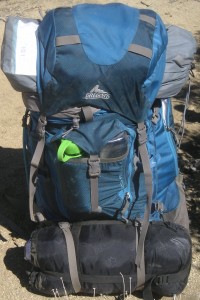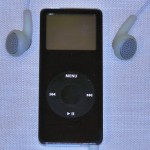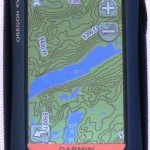 The term flashpacker usually refers to an urban backpacker with an upscale budget.
The term flashpacker usually refers to an urban backpacker with an upscale budget.
An urban backpacker, as opposed to a wilderness backpacker, is someone traveling in a low cost manner with the primary objective of extending the trip. Imagine a college student resting his weary head against a ragged old backpack on the floor of a European train station, holding a piece of cheese in one hand and a youth hostel guide in the other, and you pretty much got the picture.
A flashpacker maintains the urban backpacker’s adventurous attitude, but does so with bit more money and a significantly higher standard for comfort. The flashpacker would more likely lounge by his new gadget filled backpack in the hotel lobby, iPhone in hand, multi-tasking between surfing for the nearest zip line, and updating his Facebook status.
A traditional wilderness backpacker is often motivated by a desire to escape the hustle and bustle of everyday urban life. The objective is to connect with nature in its rawest form. In the past, limitations of weight and bulk required backpackers to strip their life’s possessions down to the bare necessities. For many this minimalist existence and the powerful feeling of simplified self-reliance are part and parcel to the wilderness backpacking experience.
What happens when the wilderness backpacker has access to discretionary funds, and an itch for techno comfort? A wilderness flashpacker is born.
 Advances in technology have significantly changed the items which will easily fit into our backpacks, if not our skimpy budgets. These devices often represent, on steroids, the very things we previously jettisoned in exchange for our mobile outdoor experience. After all, how much does an iTune actually weigh? How much physical space is taken up by an electronic book? How about 100 of them? or 1,000? or 10,000? The potential economies of scale seem frankly ridiculous. I will not likely be in the back country long enough to listen to 100 books on tape or 50 days worth of classic rock, but what the heck, they fit.
Advances in technology have significantly changed the items which will easily fit into our backpacks, if not our skimpy budgets. These devices often represent, on steroids, the very things we previously jettisoned in exchange for our mobile outdoor experience. After all, how much does an iTune actually weigh? How much physical space is taken up by an electronic book? How about 100 of them? or 1,000? or 10,000? The potential economies of scale seem frankly ridiculous. I will not likely be in the back country long enough to listen to 100 books on tape or 50 days worth of classic rock, but what the heck, they fit.
 Some items are simply high tech versions of things we previously carried. A set of physical topographic maps can be replaced by a handheld GPS. A collection of nature field guides can be loaded on our eReader. Our clunky 35mm SLR camera with film for 48 pictures can be more than replaced by a tiny digital camera with the potential to take 32GB of still and video memories. As these gadgets find their way into our packs, we begin to take on the flashiness of a wilderness flashpacker.
Some items are simply high tech versions of things we previously carried. A set of physical topographic maps can be replaced by a handheld GPS. A collection of nature field guides can be loaded on our eReader. Our clunky 35mm SLR camera with film for 48 pictures can be more than replaced by a tiny digital camera with the potential to take 32GB of still and video memories. As these gadgets find their way into our packs, we begin to take on the flashiness of a wilderness flashpacker.
More impactful than the modernization of existing clutter is the inclusion of things never before possible in the wilderness. With advances in electronic connections, whether satellites, cell towers, or emerging technologies, escaping the hustle and bustle of everyday life now requires a conscious effort. You carried your PDA because of the built in GPS and map, but what the heck you seem to be getting some bars, why not check your email or shoot out a quick tweet? After all, everyone deserves your status update. Surely they are desperate to know how many calories were in that snack, the size of the fish that just got away, or how your last bowel moved you in the wilderness. Right?
It is difficult to discuss the use of technology in the back country, without sparking a bias which often roars into a wildfire. Smokey the eBear may need to reminds us: only you can prevent flashpacker fires. Disagreement usually come down to “good witch” versus “bad witch” conclusions.
- The iPod music distracts me while hiking, leaving me much happier and more pleasant to be around. Good Witch!
- The music distracts me and I do not hear your cries for help as a bear mauls you. Bad Witch!
- After getting bite by a rattlesnake, the electronic beacon allows me to quickly reach out to search and rescue. Good Witch!
- The beacon provided me a false sense of security, and I pushed way beyond my skill and training, placing both my party and the entire search and rescue team at risk. Bad Witch!
The ability to leap from cause to effect is an imprecise art. Generations face off from opposite sides of a continental divided. The young whipper snappers pitch their ultralight tents in the pro tech camp, while the old fogies dig in their high laced leather boots. How can the same flash of facts result in such different reactions?
Technology in the wilderness is likely to be more than a mere flash in the pack. In the immortal words of the King… Rodney actually: “Can’t we all just get along?” And if we can, how long is it, and who’s gonna carry it? Frankly, there really should be an app for that.
